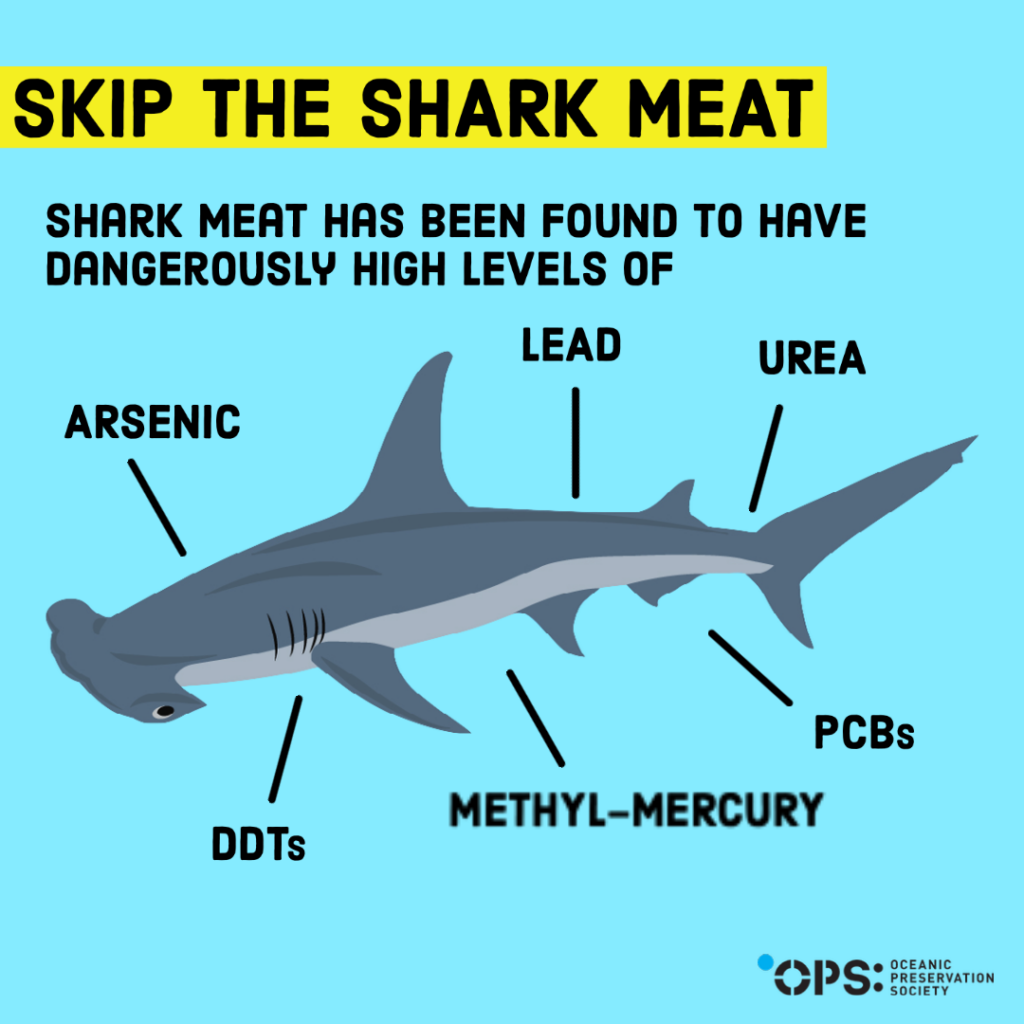
Could you be eating shark meat and not even know it?
If you care about how your eating habits are impacting wildlife and the planet, you should know about the disturbing trend of mislabeled shark meat across the globe.
Shark meat is frequently being sold under misleading names, deceiving consumers who are not aware that they are consuming shark at all — let alone of the potential environmental consequences of doing so.
The terms for shark meat vary by country and language, numbering in the hundreds, but some of the most notable include flake, pescado blanco, cazon, taupe, surimi, huss, rock salmon, and moki. Even pet food can contain shark meat, often labeled as “white fish” or “ocean fish.”

What’s wrong with eating shark?
Many people would be disturbed to simply know that they are unknowingly eating shark, but the issues go far beyond that. Eating shark can negatively impact both sustainability and personal health.
Shark populations are already facing alarming levels of decline. An estimated 70-100 million sharks are killed each year. To make the situation even more concerning, sharks mature slowly and have a late reproductive stage. They are simply unable to keep up with the rate we are wiping them out at.
Continuing to allow sharks to be consumed contributes to overexploitation and disrupts marine ecosystems, with far reaching consequences that negatively impact biodiversity and the overall health of the ocean.

The health impacts of eating shark meat relate to the consumption of heavy metals. As we continue to contaminate the oceans, fish and other marine life absorb some of the bio-toxins and heavy metals. These toxins accumulate in their bodies through a process called biomagnification, where each step up the food chain intensifies the concentration of contaminants. Being at the top of the food chain, sharks accumulate high levels of these harmful substances, such as methyl-mercury, DDTs, PCBs, lead, arsenic, and more.
Consumers must be aware of the health risks associated with consuming shark meat, but unfortunately, mislabeling makes that nearly impossible.

What can you do?
When purchasing seafood, read the label closely to find out what type of fish you are eating and how it was caught. Be on the lookout for the common misleading names for shark meat that we shared above. And, alternatively, if your food security allows, we recommend minimizing your seafood consumption or forgoing it all together.
Help spread the word! Without clear labeling, people and their pets could be unknowingly consuming high levels of contaminants repeatedly, threatening their own health and the health of the ocean. Whether it’s over dinner with your family or on your social media, help get the word out!
Support our ongoing work to protect sharks. Consider donating to OPS to support our campaigns to end harmful fishing practices or starting your own unique fundraiser. In this critical time, it is imperative that we continue to expose crimes against nature, but we cannot do so without your help.